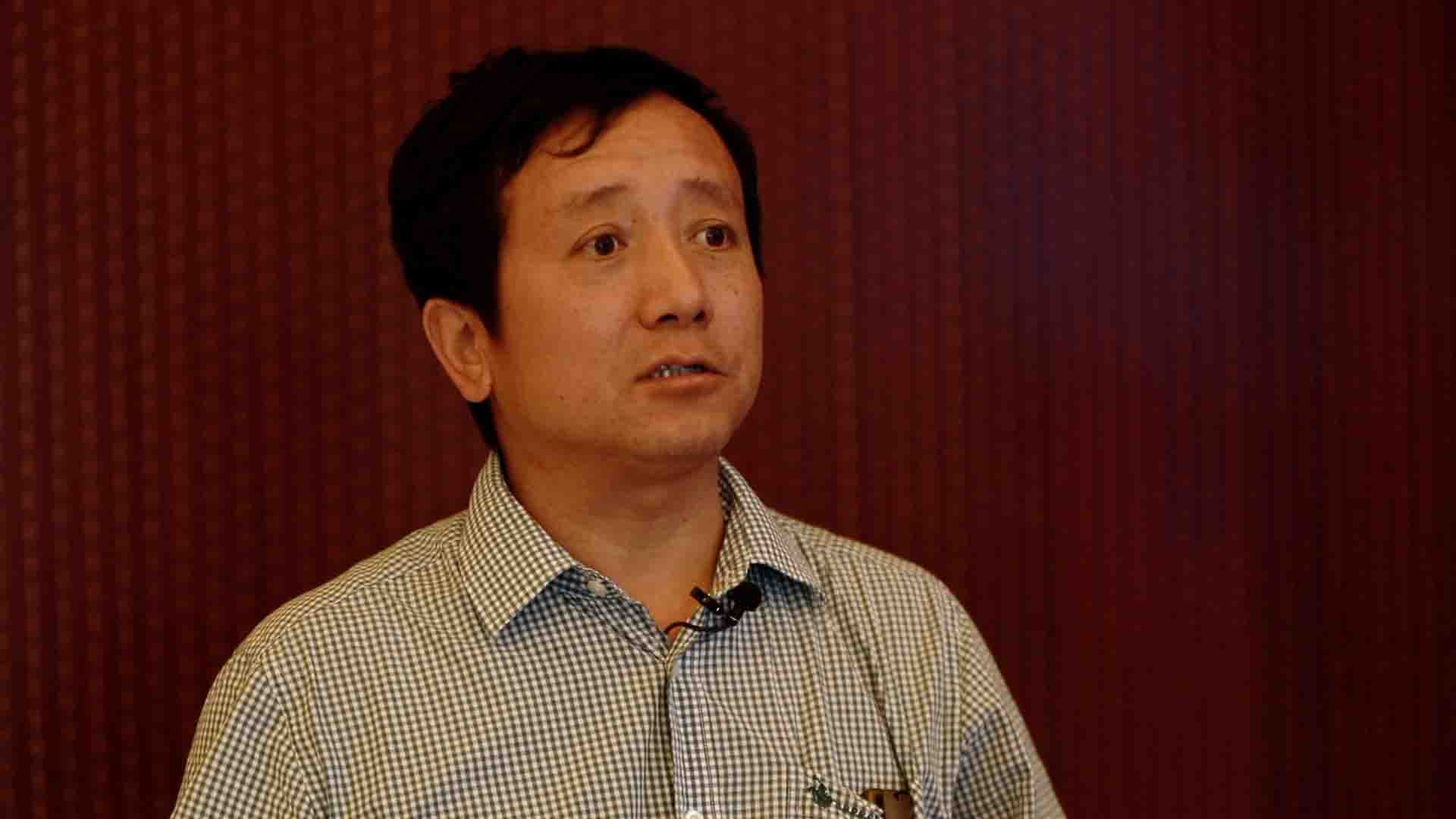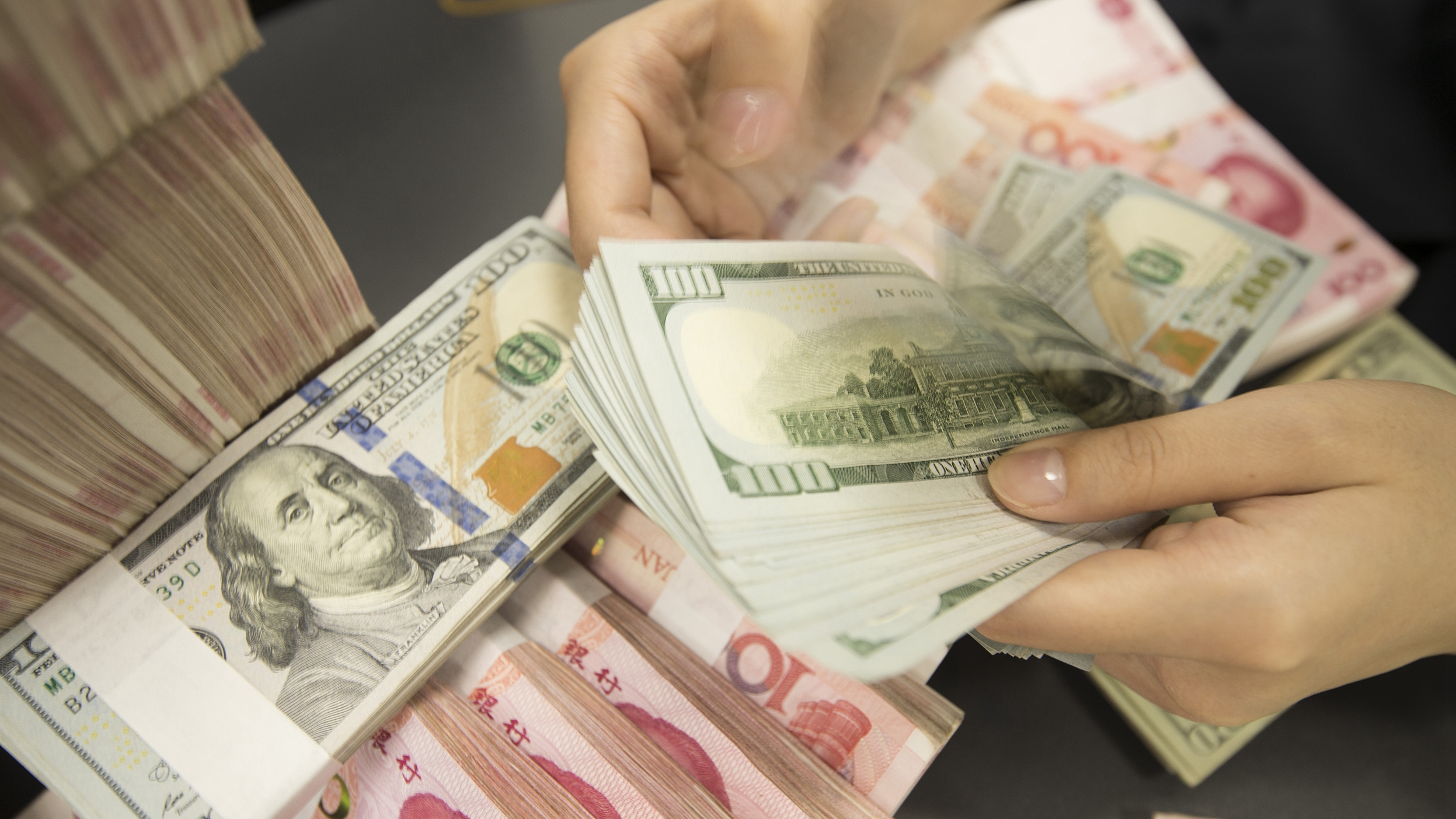
By labeling China a currency manipulator, the U.S. wishes to press the Chinese yuan into rapid and substantial appreciation against the U.S. dollar, which goes against the laws of the financial market, Mei Xinyu, a senior researcher at the Chinese Academy of International Trade and Economic Cooperation (CAITEC), told CGTN on Tuesday.
The Chinese yuan weakening beyond seven to the U.S. dollar is an overshooting reaction to changes in the market, said Mei at a seminar held by CAITEC on the same day. He continued to say that the fluctuation of the exchange rate is normal, adding that since the beginning of 2019, the depreciation of the yuan exchange rate against the U.S. dollar has been about 0.5 percent.
Mei said that China has a service trade deficit which resulted largely from tourism. "In the foreign exchange market, the relationship between supply and demand eliminated chances that the Renminbi will sharply depreciate", he said.
Chinese tourists spent 130 billion U.S. dollars overseas in 2018, according to a recent report.

The People's Bank of China said in a statement on Tuesday that the yuan adopts a floating exchange rate system which is line with the basics of market supply and demand and a regulating reference of a basket of currencies, while arguing against accusations of currency manipulation.
Read more: PBOC chief: China will not use yuan as tool to cope with trade disputes
According to Mei, rising Renminbi reserves held by foreign investors, as well as the currency raising weight in global indexes, will lead to an appreciation of the Renminbi in the long run.
China's A-share market entered leading global indexes such as the FTSE Russell and Bloomberg Barclays Global Composite Bond Index this year. MSCI also announced in March it would raise the weight of China's A-shares from 5 percent to 20 percent.
Pressing the yuan to appreciate is an effort to maximize the effect of the new tariff, said Sang Baichuan, dean of the Institute of International Economy in the University of International Business and Economics, at the seminar.

VCG Photo
He referred to the U.S. plan of imposing an additional 10 percent tariffs on 300 billion U.S. dollars' worth of Chinese imports that begins September 1.
Sang cautioned of the depreciation of the U.S. dollar, as possibilities of a stronger yuan and the recent move of the U.S. Federal Reserve rate cut both point to that result.
"If a considerable depreciation happened, the status of the dollar as a global currency will be challenged," said Sang. He continued that having a global currency is at core economic interests of the U.S.
"However, policies and means the U.S. deployed in the trade war are self-contradictory, which will ultimately challenge the core economic interests of the country," Sang added.
The International Monetary Fund (IMF) acknowledged that the Renminbi exchange rate is in line with the country's overall fundamentals in June this year.
U.S. president Donald Trump has been accusing China of currency manipulation since the 2016 presidential campaign, while his Treasury Department found no ground to label China as a currency manipulator in five reports it had issued since Trump took office.
(Video by Zheng Chenlei)
Read more: Trump misrepresents facts on China's currency: AP
Analysis: The political logic behind Trump's latest tariff salvo

Copyright © 2018 CGTN. Beijing ICP prepared NO.16065310-3
Copyright © 2018 CGTN. Beijing ICP prepared NO.16065310-3